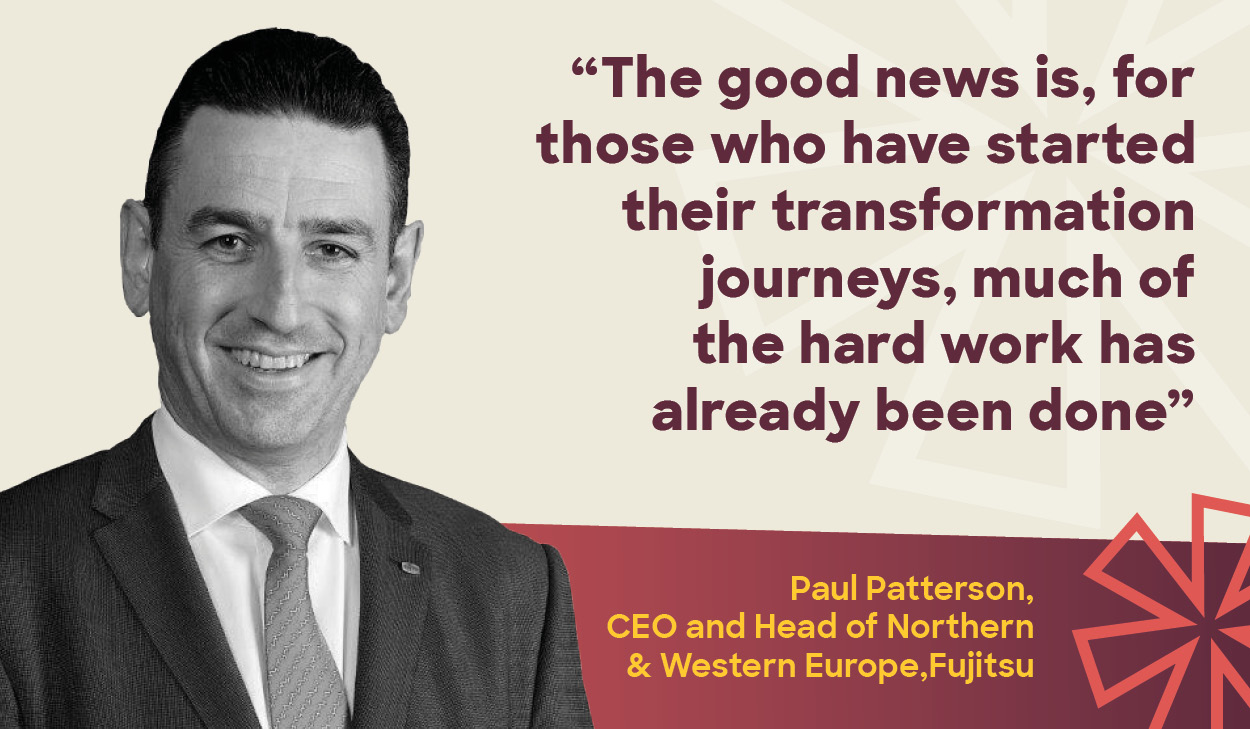Now is the time to seize the remote working moment, says Paul Patterson, CEO and Head of Northern & Western Europe at Fujitsu
If there is one phrase that sums up the post-pandemic world, it’s ‘there’s no going back.’
The world has changed forever. The way we live, work, socialise, and engage with brands – it’s all been transformed in a bid to retain as much normality as possible. Technology has helped us carry on with our lives, and we’ve all formed new habits that will stick around long after we move beyond this phase of COVID-19.
The pandemic has also driven radical change in the business world. Digitally-savvy businesses that were on the front-foot with the adoption of technology have fared better during the COVID-19 storm, while those slower to adapt have faced mounting pressure to accelerate their transformation plans and are now having to play catch-up.
Remote working has undoubtedly been the biggest area of change. Almost overnight, many of us cleared out our lockers and left the office not knowing when we would return. Never did we suspect that, more than a year down the line, we’d be discussing the possibility of not returning at all.
A new normal
Remote working is a rare silver lining in otherwise uncertain times. Businesses suddenly have the flexibility to shape their workforces in entirely new ways, dispensing with costly offices and hiring remote talent from further afield.
But perhaps even more importantly, there have been big benefits for employees. Eliminating the morning commute for instance. Not only do employees save money, but they also save time, helping them create a healthier work/life balance – which inevitably feeds back positively into their productivity.
In fact, in a recent report by Fujitsu, we found the time and costs of commuting were cited as the biggest drawbacks of returning to the office for most employees, who insisted that they could be just as productive from home.
That being said, most organisations are recognising that a hybrid strategy is optimal on every level. For instance, 84% of employees miss socialising with their colleagues, 58% of the C-Suite worry that long hours while working remotely will end up burning out employees and 90% have prioritised employee mental health since the pandemic.
Making hybrid happen
Only 18% of employees and leaders want to return to the office full time. While few want to permanently work outside the office, they also don’t want to return to five-day weeks of long commutes and inflexible hours.
Organisations across public and private sectors with office-based people have been forced to make some tough decisions when pivoting to remote working, but they now have an entirely new dilemma on their hands. Hybrid working is a different beast altogether, requiring businesses to completely reimagine their physical office spaces, the technology they use, and their working cultures.
How many days a week should employees be allowed to work from home? How do you run meetings when some people are in the office and some are remote? Can premises be downscaled if the amount of people in the office at any one time is drastically reduced? And how can we just make it all happen without it becoming complex?
The good news is, for those who have started their transformation journeys, much of the hard work has already been done. The technology and working cultures that enable remote working can be evolved to suit a hybrid environment. There’s still work to be done to increase the sophistication and become smart about it, but the pandemic provided the catalyst to get things moving.
There is an opportunity to exit with advantage, if we get the next stage right.
And with 41% of leaders saying their customer demands change weekly and that they have difficulty keeping up with them, the time is right to take those bold steps that will help create agile workplaces.
With 85% of leaders in the UK saying that hybrid working will make them more resilient to future change, now is the time to seize the moment because there really is no going back.
Register for insights and updates or implement one of our levy-funded leadership programmes by clicking on the buttons below.


















